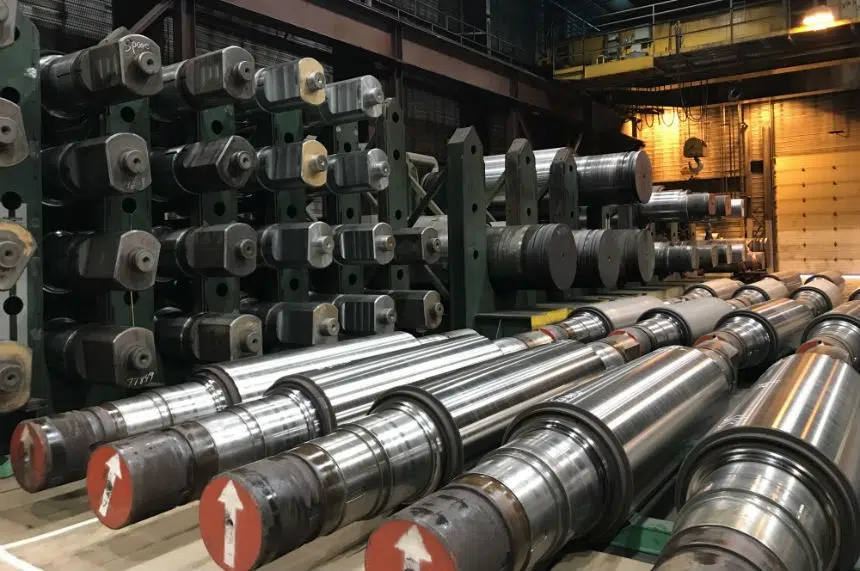Employees at Evraz Steel in Regina are watching the latest developments surrounding the Trans Mountain pipeline project with intrigue.
The federal government announced Tuesday it is going to buy the pipeline from Kinder Morgan and that has the union representing steel workers hopeful things will ramp up for them shortly.
“We hope it means we’re going to get the order back going here. As the Canadian government picks this up, I hope that they’re going to stick with what Kinder Morgan had already agreed to. We were supposed to make 75 per cent of it,” Mike Day, president of United Steelworkers 5890 said.
“The Canadian government’s picking up the tab on it, it seems now, so hopefully our Canadian workers and our Canadian made steel and pipe are still going to be used.”
Day said the company began hiring between 120 and 130 employees last September in preparation for the job. However, just recently they decided to put hiring to a halt.
“We stopped work on this order a couple of weeks ago just because of the announcement from Kinder Morgan in (that) they weren’t investing any more into it so hopefully this changes and changes rather soon for us.”
He said there haven’t been any layoffs but he’s uncertain if more people will be hired in the future. He added, at more than 1,000 unionized members — this is the highest amount of manpower he can remember having.
Day called it a large project, estimating it would be roughly 12 months of work from start to finish.
Premier Moe hopeful
Premier Scott Moe has been a vocal backer of the project.
“Although I maybe don’t quite agree with nationalizing this pipeline, if you will, I hope it works,” he told Gormley Tuesday morning.
The premier said he knew something was coming, but was still surprised in the federal government’s announcement. He still has many questions in how this pipeline will move forward.
“I’m not certain how the ownership of the pipeline changes how we actually build this pipeline and ensure that we have the federal government that fills their full scope of jurisdiction around this. I hope in some way it does, but I don’t see how it does,” Moe said.
The differential costs Saskatchewan’s economy more than $2 billion a year he explained. He’s also left wondering what message the government’s decision sends.
“Now we have a scenario where we have the Government of Canada sending a similar amount of dollars to a US company to essentially leave, so some concerns about what signals this sends to the investment climate here.”
Business analyst weary of deadline
As people across Canada grapple with Ottawa’s decision to buy Trans Mountain, people in the business community are also speaking on the move.
650 CKOM analyst Paul Martin said he’s concerned now there’s no longer a deadline for determining the expansion.
“The politics are — the company is out of it, the government is in it. The government is now setting the timetable. Will this project ever go ahead? That’s a really good question.”
Additionally, the move for government intervention could send the wrong message to international investors.
“We need to send a signal to the world that Canada is indeed open for business,” he said.
“Maybe Kinder Morgan is a bit of an indicator … of how the industry is looking at this. They may just get frustrated with this and say, ‘That’s enough,'” he said.
Martin added if the expansion goes ahead, Saskatchewan will reap indirect benefits. He said the pipeline is an outlet to move oil from the prairies, which could raise the price.
“We would have a benefit that would spin through to the provincial treasuries, would create jobs, would spark some activity in the oil patch.”
—With files from Daniella Ponticelli











